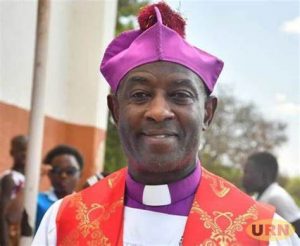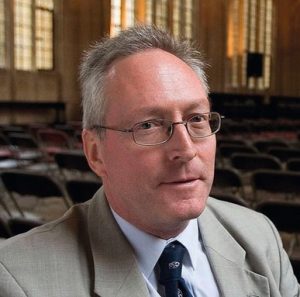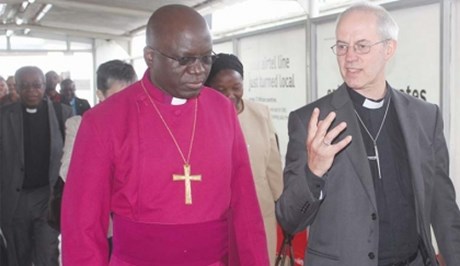The Church of England’s decision to allow same-sex couples to receive blessings in the church has drawn rebukes from church leaders in Africa.
A majority of Church of England synod members, comprising bishops, clergy and laity, voted in favor of the extension of blessing to same-sex couples Feb. 9. Synod members also voted to “lament and repent of the failure of the church to welcome LGBTQI+ people and for the harm that LGBTQI+ people have experienced — and continue to experience — in churches.”
Albert Chama, the primate and archbishop of Central Africa, said the decision “undoubtedly has raised a lot of eyebrows and consternation within and outside the Anglican communion.” However, the order does not extend to churches in Central Africa, comprising Botswana, Malawi, Zambia and Zimbabwe, he said.
Decision not binding
“We are aware that the decision made on 9th February was of the Church of England, by the Church of England and for the Church of England,” Chama said. “This decision is not binding on the Church of the Province of Central Africa or any constituent member church in the Communion in any way.
“We call upon our clergy and lay faithful to prayer so that we may continue to discern God’s plan of salvation for humankind.”
“The church of the Province of Central Africa reaffirms her belief in the orthodox teaching that marriage is between a man and a woman. This is biblical, and it is enshrined in our constitution and canons. We call upon our clergy and lay faithful to prayer so that we may continue to discern God’s plan of salvation for humankind.”
Additionally, the Global South Fellowship of Anglican Churches — the GSFA — composed of Anglican churches from some African countries, said the Church of England’s ruling is contrary to the church’s doctrine.
GSFA members and groups that have begun the process of joining the fellowship include the Episcopal Church of South Sudan and Sudan, the provinces of the Anglican Church of Congo, Uganda, Burundi, Nigeria, Rwanda, Tanzania, and the church of the provinces of Central Africa, Southern Africa and West Africa.
The GSFA also includes members from Southeast Asia, the Indian Ocean, North America and Brazil, Bangladesh and Papua New Guinea.
The organization met virtually to reflect on the Church of England’s same-sex decision. The primates agreed the Church of England has “departed from the historic faith of the Church,” they said in a statement, promising to say more soon.
A “terrible decision”
The GSFA issued its statement three days after Stephen Samuel Mugalu, archbishop of the Church of Uganda, called the Church of England’s resolution a “terrible decision.”
“I want to talk about the position of the Church of Uganda,” Mugalu said. “There have been very many questions about it in light of this terrible decision of the Church of England.
“First, from the first page of the Bible in the book of Genesis to the last page of the Bible in the book of Revelation, it is clear that God’s design for human flourishing is that we are part of a family – a family that is defined as one man and one woman united in holy matrimony for life and, God willing, a union that produces children,” he added.
“God’s word has said the only context for sexual relationships is in the context of a marriage of one man and one woman.
“Second, because lifelong, exclusive marriage between one man and one woman is the only context for sexual relationships, the Bible calls any other kind of sexual relationship a sin. Whether it is adultery, or fornication, or polygamy, or homosexual relationships. They are all sin, and they all separate us from God.”
Clever by half

Stephen Mugalu
The Church of England was being clever by half in its choice of words, which is discernable from its proclamation, Mugalu said. “The Church of England insists it is not changing its doctrine of marriage. But, in practice, they are doing precisely that. You may read various articles, opinions and commentaries on this decision that try to justify its action. But what I want you to know is that if it looks like a wedding, and sounds like a wedding … it is a wedding.”
Although Uganda is not bereft of sexual sin, the position of the church to those who indulge in it is to repent of their sins and be forgiven as the Bible preaches, he said, adding any position outside this biblical precept is unacceptable.
“They are now saying, ‘Go, and sin some more.’ They are even offering to bless that sin. That is wrong.”
“The Church of England … has now departed from the Bible, and their new message is the opposite message of the Bible,” Mugalu said. “They are now saying, ‘Go, and sin some more.’ They are even offering to bless that sin. That is wrong. As the Church of Uganda, we cannot accept that. God cannot bless what he calls sin.”
The “suicidal path” the Church of England has taken began in 2003, when the Episcopal Church in America consecrated a gay man as a bishop, Mugalu said. That decision led the Church of Uganda to break away, but it has suffered no guilt as a result of the action.
The moral burden of such a decision rests with those whose worldview it does not share, he said.
“Pray for them to repent”
“The Church of England, together with the Episcopal Church in America, the Anglican Church of Canada, the Church in Wales, the Scottish Episcopal Church, the Episcopal Anglican Church of Brazil, and others …. We pray for them to repent,” he said. “And if they refuse to repent, then we call on them to have the integrity to form their own Canterbury Communion, because what they believe is not Anglicanism, and it is not the faith once delivered to the saints.”
The Anglican Church of Kenya also called on “western liberal provinces to repent and return to the one and only faith in Jesus Christ” as enshrined in “the canonical Scriptures of the church” as “rhetoric of political and secular correctness will only serve to undermine the one and only pure gospel,” it said in a statement.
The Reformed Evangelical Anglican Church of South Africa also saw something wrong in the Church of England’s resolution.
“We continue to love our same-sex attracted brothers and sisters, but unlike many Anglican leaders, we cannot ignore the disciplines of godliness and embrace the social conventions of the day,” it said. “We are convinced that this is not only an affront to our God but a failure to hold out the true hope of eternal life for all who repent and believe in Christ.”
No surprise
Henry Ndukuba, the archbishop metropolitan and primate of the Church of Nigeria, said the Church of England’s vote favoring same-sex unions did not come as a surprise as the church had previously failed to discipline the Episcopal Church of America, Canada and others that consecrated gay bishops. He accused them of choosing to sit on the fence as “crisis tore the communion apart.”
The Church of England’s decision amounts to “quarrelling with God.”
Those churches failed to function as defenders of the faith and an instrument of unity in the global Anglican Communion, he said, noting the Church of England’s decision amounts to “quarrelling with God.”
As the African Anglican church leaders responded to the Church of England’s decision, the Anglican Consultative Council met in Ghana. More than 100 representatives from more than 40 Anglican provinces deliberated on issues of common concern in the West African country.
Justin Welby, the archbishop of Canterbury and leader of the Church of England, attended the meeting and addressed the issue. The circumstances in which he found himself left him with no choice but to proceed with the process that led to the resolution, Welby said.
“I was summoned twice to Parliament and threatened with parliamentary action to force same-sex marriage on us, called in England ‘equal marriage,’” he said. “When I speak of the impact that actions by the Church of England will have on those abroad in the Anglican communion, those concerns are dismissed by many, not all, but by many.”
“Drearily predictable”
Diarmaid MacCulloch, a minister and emeritus professor of history of the church at Oxford University, said he was not surprised by the African leaders’ response to the Church of England’s decision.

Author Diarmaid MacCulloch (Photo by David Levenson/Getty Images)
“It is drearily predictable — part of the worldwide decision by religious conservatives to make homosexuality a flagship issue standing before every other question in Christianity,” he said. “That reflects a curious colonialist hangover from the imposition of British Victorian views of sexuality on Africans. One would think that African archbishops would have more urgent ethical issues on their minds, like political corruption or social inequality.”
The Church of England’s decision is “a half measure that reflects the divisions on the subject among the C of E’s bishops, and the best that one can say about it is that it pleases no one,” MacCulloch said.
“Conservatives are furious, because it moves irrevocably against the idea that homosexuality is a sin to be condemned. That can’t be so if you’re prepared to bless same-sex partnerships.
“Everyone else is disappointed by its illogical half-way-house nature, which falls short of what has happened in the Church of Scotland, the British Methodist Church and within Anglicanism, in the Scottish Episcopal Church and the Church in Wales.
“And, of course, it has gone down like a lead balloon in the general UK population, who are now mostly well-disposed to equal marriage. The fact that it’s a half-way-house is very Anglican and not necessarily a bad thing; that’s the way that progress is made in Anglicanism.”
Anthony Akaeze is a Nigerian-born freelance journalist who lives in Houston. He covers Africa for BNG.
Related articles:
Church of England tries to make a middle way on same-sex unions, but …
Church of England won’t allow same-sex marriage but may allow a liturgical blessing of civil unions
The Church of England’s compromise on same-sex relationships is disastrous for everyone

